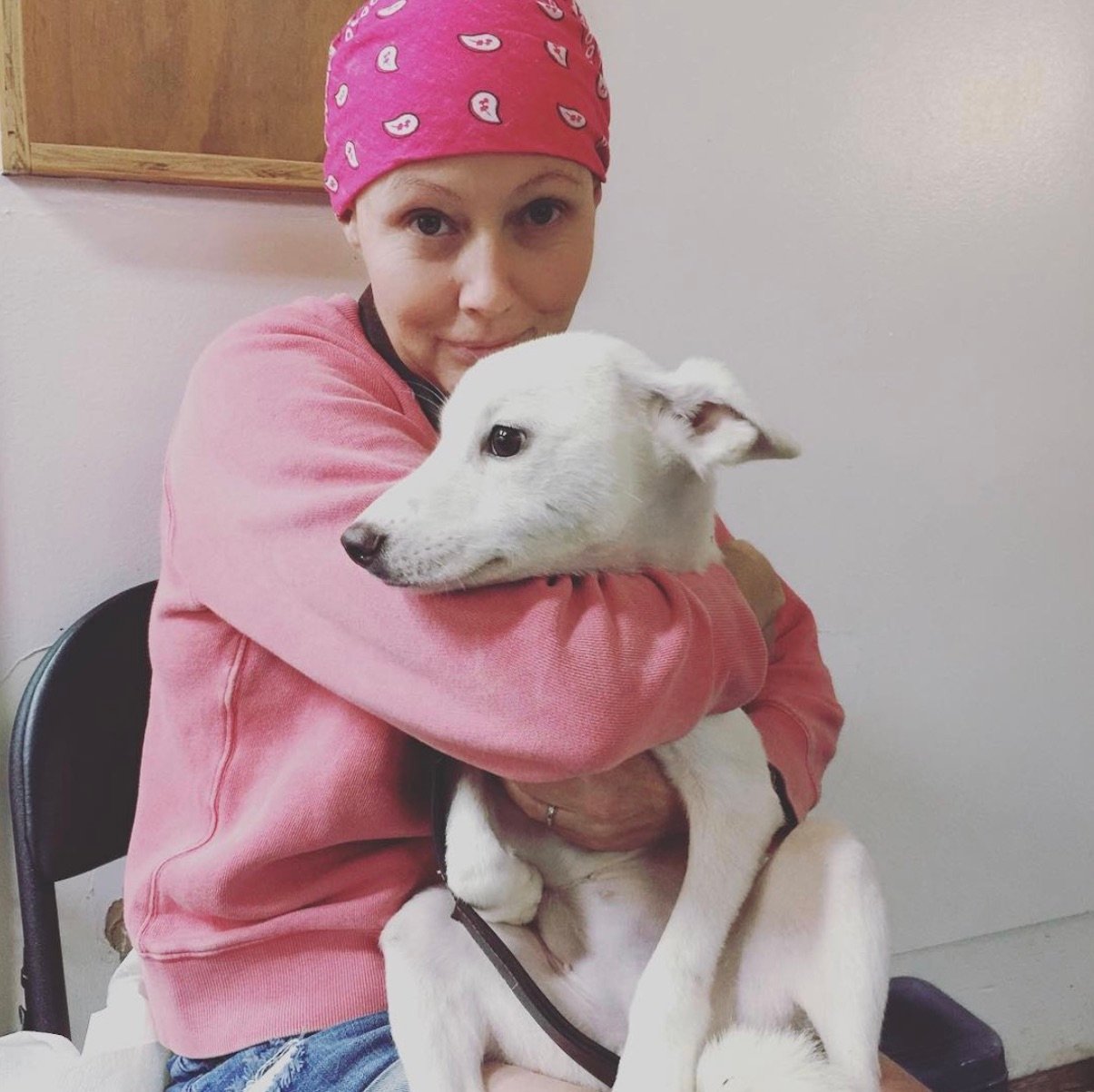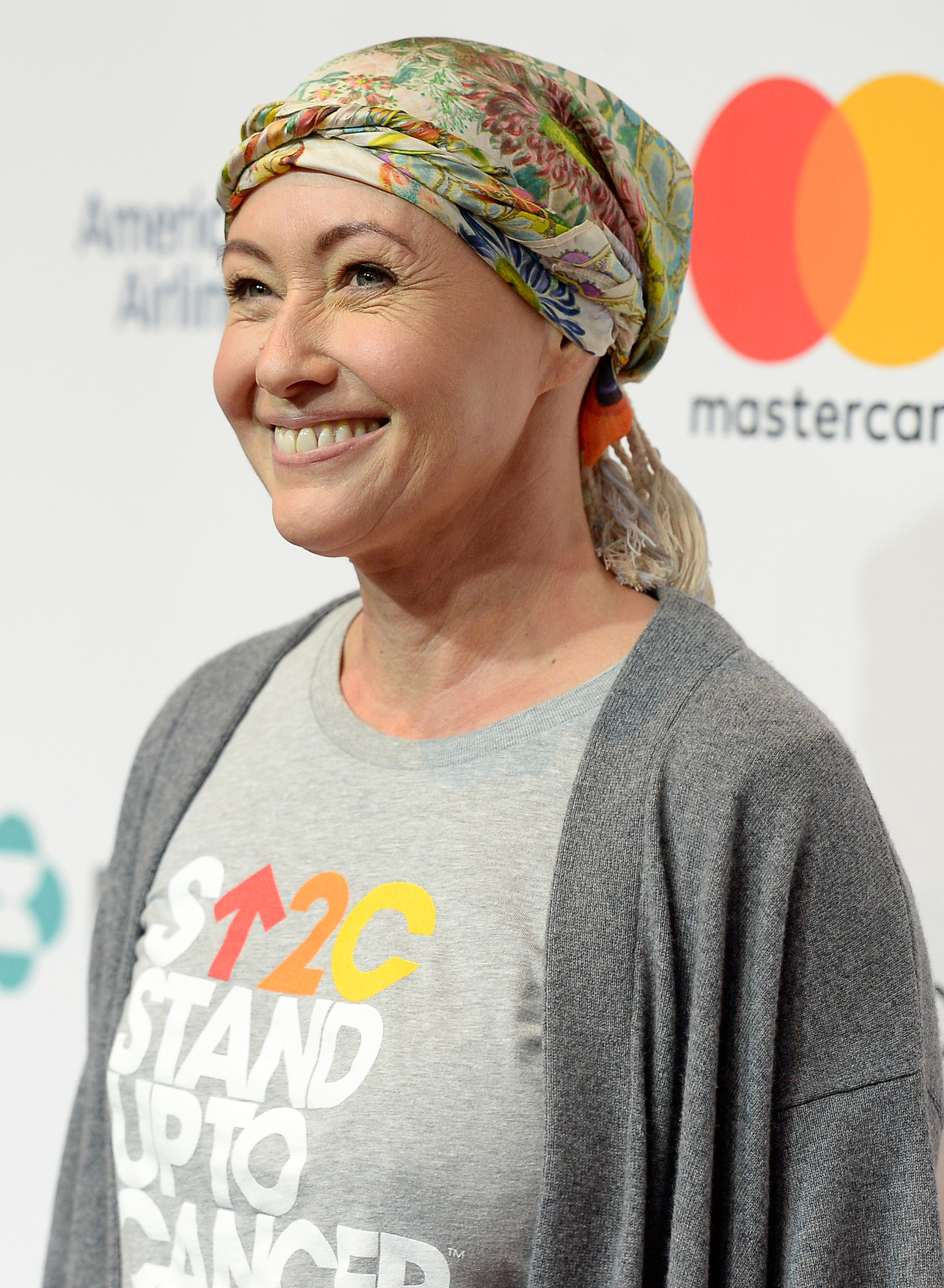Power of Support During Cancer
- Actress Shannen Doherty, 52, joined her fellow cast members from the 1990s “Beverly Hills 90210” sitcom for a nostalgic 1990s-themed con event. The beloved actress grew emotional as she described her ongoing breast cancer journey, calling it a “fight every day.”
- Doherty portrayed Brenda Walsh on the sitcom until she left the show in 1994. In her personal life, she was first diagnosed with breast cancer in 2015. It went into remission in 2017 but returned as stage 4 cancer in 2019, meaning it has spread to other body parts.
- Doherty’s breast cancer spread to her brain, causing her to undergo surgery to remove a tumor in her brain at the beginning of this year.
- Since brain surgery, Doherty’s recovery appears to be going well as social media posts by the beloved actress show her in good spirits, surrounded by loved ones.
- Doherty often credited her support system for helping lift her spirits throughout her cancer journey. Experts agree cancer patients with a support system filled with loved ones tend to endure the rigors of treatment better.
The cast of “Beverly Hills 90210” reunited for a “90s Con” event, and the moment was quite emotional for brave and resilient actress Shannen Doherty, 52, who portrayed Brenda Walsh on the popular sitcom. Her fellow cast members have been a huge part of her support system as she’s battled stage 4 breast cancer over the years, and her emotional journey was hard to ignore during the gathering. As she spoke of her diagnosis, it prompted a standing ovation from the audience showing their support for her bravery and courage to keep fighting.
“Thank you so much,” a teary Doherty said at the nostalgic event People reported.
Read More
It’s heartwarming to see the cast still close and supportive of each other. This rings especially true for Doherty, who left the sitcom under challenging circumstances.

Doherty was a regular cast member on the 1990s teen TV hit show “Beverly Hills 90210.” She portrayed Brenda Walsh on the show centered around a group of teenage friends living in Beverly Hills, California, navigating high school and college.
Doherty left the award-winning show in 1994. Its on-air run lasted from 1990 to 2000. Garth and Spelling described a toxic environment on set that contributed to Doherty’s departure during a recent episode of Spelling’s “90210MG” podcast.
“I wish that Brenda would have stayed on the show,” actress Jennie Garth, 51, said on the podcast.

“I don’t know where they were gonna go with her character,” Garth continued.
“The energy became toxic on set. I’m not saying she [Doherty] made it toxic, just from everything going on. So, it did need a break. But yet, if we had taken a breather, and everyone had calmed down and sorted out, it would have been really nice to have Brenda come back,” Spelling, 50, said.
RELATED: Boston Mom, 51, Finds Hope With New Treatment For Aggressive Breast Cancer
Off-screen, the beloved actress was first diagnosed with breast cancer in 2015. It went into remission in 2017 but returned as stage 4 (or metastatic) in 2019. Metastatic cancer, for which there is no cure, means it has spread to distant areas of the body. In Doherty’s case, her cancer spread to her brain.
RELATED: New Hope For South Carolina Mom, 32, Battling Metastatic Breast Cancer
Despite her cancer diagnosis, the resilient actress focuses on the positive. Since surgery for her cancer earlier this year, she’s been spotted a few times in public enjoying life.
More on Metastatic Breast Cancer
- Are You A Metastatic Breast Cancer Patient Curious About The Drug Enhertu? Here’s What You Need To Know
- CD4/CD6 Inhibitors For Metastatic Breast Cancer — What Are The Side Effects?
- Debt Collectors Are Hunting Half of Women with Metastatic Breast Cancer — Help Us, Please!
- Elacestrant (Orserdu) Offers Hope for Patients With a Stubborn Form of Metastatic Breast Cancer
Doherty’s Cancer Journey Is Filled with Resilience and Inspiration
Shannen Doherty’s initial breast cancer diagnosis arrived in 2015 after discovering a lump in her breast. For treatment, she had hormone therapy, a single mastectomy (the removal of all breast tissue from one breast), chemotherapy, and radiation.
By 2017, she achieved remission status, but the disease returned two years later in 2019. This time around, her breast cancer was metastatic, or stage 4.
WATCH: Treatment options for late-stage breast cancer.
“With advanced disease, the goal of treatment is to keep you as stable as possible, slow the tumor growth, and improve your quality of life,” SurvivorNet advisor Dr. Elizabeth Comen, an oncologist with Memorial Sloan Kettering Cancer Center, said of managing metastatic breast cancer.
“I have so many patients who are living with their cancer. It isn’t just about living but living well,” Dr. Comen adds.

Doherty’s cancer then spread, or metastasized, to her brain. As a result, she’s undergone radiation and surgery in the form of a craniotomy to improve her prognosis.
As cancer treatments improve year over year, so does the number of people battling this form of cancer that spreads to the brain, says Dr. Michael Lim, the Chair of the Department of Neurosurgery and a board-certified neurosurgeon specializing in brain tumors at Stanford Medicine.
“A third of the patients with systemic cancers develop brain metastasis, and we estimate that number is starting to go higher not because the cancers are becoming more aggressive but because people are living longer,” Dr. Lim explained.
According to Dr. Kimberly Hoang, a board-certified neurosurgeon at Emory University School of Medicine, a craniotomy procedure like Doherty underwent earlier this year is “a procedure to cut out a tumor” on the brain that may be particularly useful “if the tumor is causing symptoms or if it’s large.”

“A couple of decades ago, to have a brain metastasis was a very bad prognosis for patients,” Dr. Hoang said. “They didn’t live for more than a couple of months, so it was a very terminal thing. Thanks to a lot of advancements in microsurgery we do and radiation, patients are living longer,” Dr. Hoang continued.
Some cancers are more prone to spread to the brain than others, Dr. Krishanthan Vigneswaran, a neurosurgeon with UT Health Houston and Memorial Hermann, tells SurvivorNet.
“Breast cancer is among the types of cancers that more commonly spread to the bone and to the brain along with melanoma, prostate cancer, renal cell cancer, and lung cancer,” Dr. Vigneswaran explained.
Since undergoing brain surgery, Doherty has been seen throughout the Spring and Summer, spending time with loved ones as she continues battling stage 4 cancer.
What To Ask Your Doctor
If you have been diagnosed with breast cancer, you may have questions about keeping your strength through treatment. Here are a few questions to help you begin the conversation with your doctor:
- What treatment will I be receiving?
- What side effects are associated with this treatment?
- Are there steps I can take daily to help minimize these side effects?
- What physical activity routine do you recommend for me during treatment?
- Do you have recommendations for someone who doesn’t particularly enjoy exercise?
- Can you recommend a dietician who can help me with healthy eating tips and weight maintenance?
- I’ve been having trouble sleeping. Do you have any treatment recommendations?
Learn more about SurvivorNet's rigorous medical review process.
